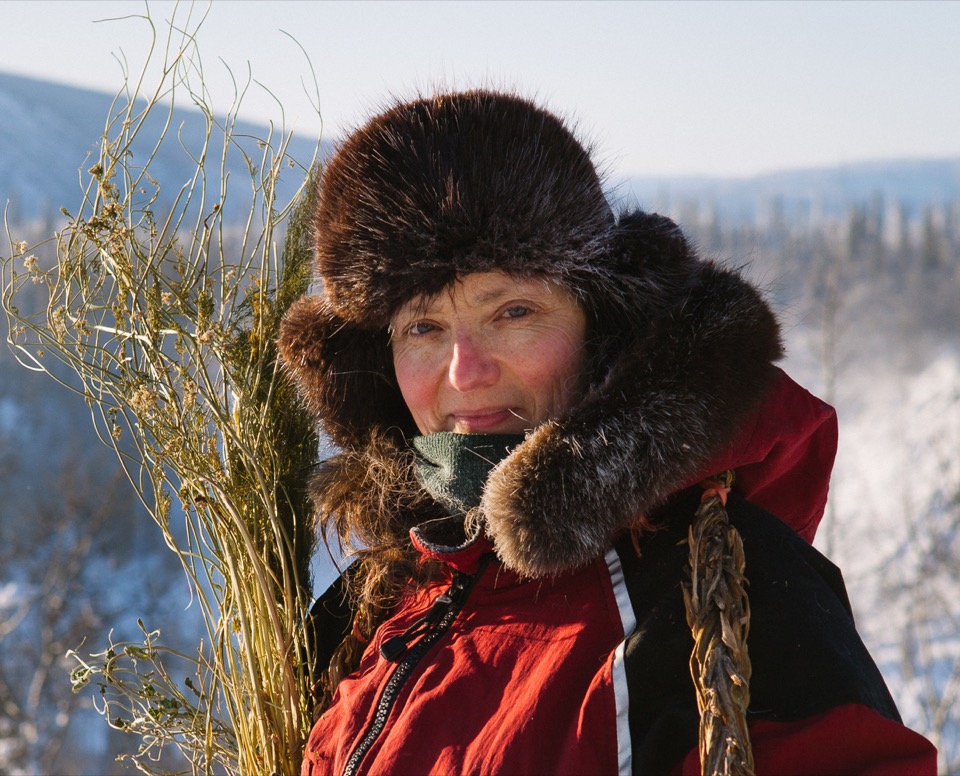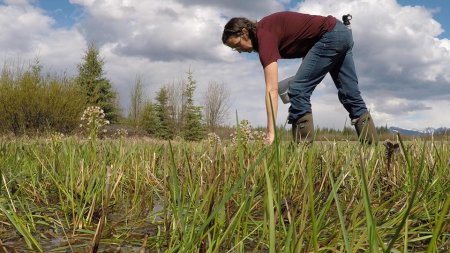What happens when an ordinary family, living just south of the Arctic Circle, bans all grocery store food from their house for one year? Add three skeptical teenagers, one reluctant husband, no salt, no caffeine, no sugar and -40 temperatures.
Films
FIRST WE EAT
| Original Title | First We Eat |
| Category | Official Competition |
| Section | GEx Doc |
| Tipology | Documentary, Feature Film |
| Duration | 101' |
| Production Year | 2020 |
| Nationality | Canada |
| Directed by | Suzanne Crocker |
| Director of photography | Suzanne Crocker |
| Editor | Michael Brockington |
| Sound | David Parfit |
| Music | Corb Lund, Alex Houghton, Andrew Laviolette, J. Robert Cooke, Marieke Hiensch, David Parfit |
| Produced by | Suzanne Crocker |
| Production | Drift Productions (Canada) |
 Suzanne Crocker
Suzanne Crocker
Suzanne Crocker, received national and international acclaim for her first documentary ALL THE TIME IN THE WORLD (2014) for which she was also director, producer, cinematographer and had turned her camera on herself and her family. Winner of 22 Festival Awards from around the world including 9 Audience Choice Awards, 4 Best Picture Awards, 7 Environmental Awards, 6 Youth Awards, including Top 20 Audience Picks at Hot Docs, and Most Popular Canadian Documentary at the Vancouver International Film Festival. All The Time in The World has screened in over 25 countries, on all continents, and been translated into 12 languages.
Director’s statement
“I live in Dawson City, Yukon, a Northern Canadian community of 1500 people at 64 degrees North - 300 km south of the Arctic Circle - on the traditional territory of the Tr'ondëk Hwëch'in. Dawson is literally at the end of the road. The nearest Starbucks is 550 km away. We are dependent on a single road that connects us to the south - one road that trucks 97% of our food from thousands and thousands of kilometers away. A few years ago, the only road into the Yukon was cut-off by a landslide. Grocery store shelves began to go bare within 48 hours. That was my wake up call. I started to pay attention to the labels on food and notice how far it had travelled. The implications of depending on food from afar gained new meaning. I learned that over 50% of the vitamins in fresh greens are lost within the first 5 days after picking. I wondered how much nutrition was left by the time it reached my plate.
Prior to colonization, indigenous people of the North ate 100% from the land. One hundred years ago, Yukon produced 97% of its own food. Now we only produce 3%. I started to wonder if we, an isolated community in the North, could once again produce enough food to feed ourselves. I decided the best way to research this question would be to try it. I would use myself and my family as guinea pigs. So, much to my family’s disgruntlement, I banished absolutely all grocery store food from our house for one year. FIRST WE EAT is the result. Since the making of FIRST WE EAT, the COVID-19 pandemic has made us all acutely aware of the vulnerabilities associated with long supply chains. The importance of shortening the food chain has taken on a new relevance globally.”
Production
festival contact
Drift Productions (Canada)
This email address is being protected from spambots. You need JavaScript enabled to view it.
International distribution
PBS International (USA)
www.pbsinternational.org









